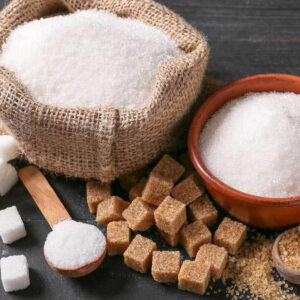The discussion of beet sugar vs cane sugar often includes comparisons of their effect on blood sugar.
The discussion of beet sugar vs cane sugar often includes comparisons of their effect on blood sugar.
Blog Article
Discover the Uses and Perks of Beet Sugar Vs Cane Sugar in Your Daily Diet
Checking out the unique top qualities of beet and cane sugar reveals greater than simply their sweetening capacities; it highlights their distinct effect on health and cooking arts. Beet sugar, recognized for its subtle taste, is usually preferred in delicate treats, whereas cane sugar, with its hint of molasses, adds splendor to durable dishes. Each kind holds its own dietary profile and glycemic implications, inviting a deeper understanding of their duties in a well balanced diet plan and sustainable usage techniques.
Beginning and Production Processes of Beet and Cane Sugar

The distinct climates and soil kinds required for growing sugar beets and sugarcane add to differences in their farming methods and geographic circulation, influencing the business economics and sustainability of their manufacturing. beet sugar vs cane sugar.
Nutritional Contrast Between Beet Sugar and Cane Sugar
Despite originating from different plants, beet sugar and cane sugar are nutritionally very similar, both mostly containing sucrose. Each offers regarding 4 calories per gram, equating to about 16 calories per teaspoon. Structurally, both sugars are made up of approximately 99.95% sucrose, with marginal amounts of other compounds like moisture and trace element, which do not significantly alter their dietary accounts.
Ultimately, when selecting between beet sugar and cane sugar based upon dietary content alone, both offer similar benefits and downsides as they are basically forms of the same molecule-- sucrose, giving fast energy without various other nutrients.
Influence On Health And Wellness: Glycemic Index and Caloric Content
Checking out even more into the results of beet sugar and cane sugar on health and wellness, it is crucial to consider their glycemic helpful hints index and caloric web content. The glycemic index (GI) of both beet and cane sugar is around 65, classifying them as high-GI foods, which can cause quick spikes in blood sugar degrees.
Each sort of sugar includes about 4 calories per gram, making link their calorie material equivalent. For those monitoring calorie intake, particularly when taking care of weight or metabolic health problems, understanding this equivalence is vital (beet sugar vs cane sugar). However, extreme consumption of any kind of high-calorie, high-GI food can contribute to health and wellness problems such as excessive weight, cardiovascular disease, and insulin resistance.
Environmental and Economic Factors To Consider of Sugar Manufacturing
Beyond health and wellness impacts, the production of beet and cane sugar likewise elevates significant ecological and financial worries. Sugar beet cultivation often tends to call for cooler climates and has a lower geographical impact compared to sugar cane, which thrives in tropical areas.
In addition, using chemicals and plant foods in both beet and cane sugar growing can bring about soil degradation and contamination, additional influencing biodiversity and regional water bodies (beet sugar vs cane sugar). The choice between cultivating sugar beet or cane typically depends upon regional environmental conditions and economic elements, making the sustainability of sugar production a complicated problem
Culinary Applications and Flavor Distinctions
While the environmental and economic aspects of sugar manufacturing are certainly substantial, the choice in between beet and cane sugar likewise influences culinary applications and flavor accounts. Beet sugar, acquired from the sugar beet plant, is known for its incredibly neutral preference.
Cane sugar, extracted from sugarcane, frequently preserves molasses traces, which impart a distinctive splendor and depth. The slight variation in wetness web content in between beet and cane sugar can impact the appearance and uniformity of recipes, making cane sugar a favored selection for specific dishes that benefit from its one-of-a-kind homes.

Conclusion
To conclude, both beet and cane sugar have distinctive beginnings and manufacturing procedures, offering similar dietary accounts with minor distinctions in salt content and flavor. While their effect click here for info on health, specifically regarding glycemic index and calories, is equivalent, the choice in between them typically comes down to ecological, economic factors, and specific cooking requirements. Understanding these facets can direct consumers in making informed choices that align with their health and wellness objectives and flavor choices.
Report this page